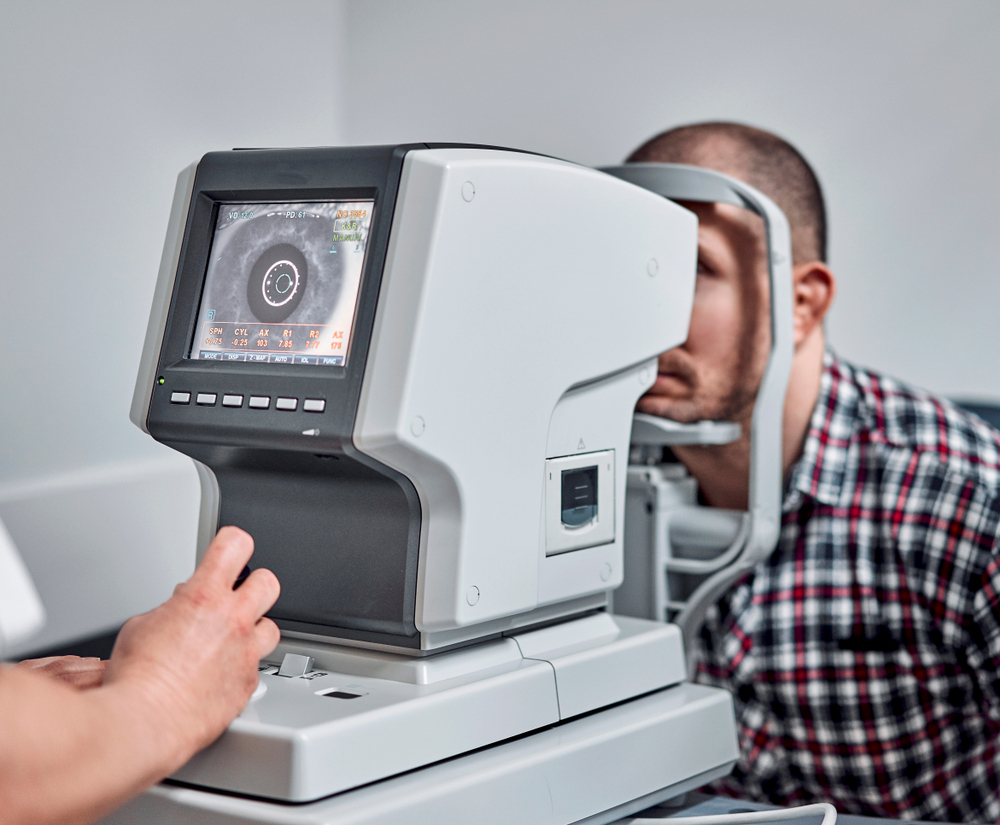What Is a Medical Eye Exam and How Is It Different from a Routine Eye Exam?

What Is a Medical Eye Exam and How Is It Different from a Routine Eye Exam?
When it comes to protecting your vision, not all eye exams are the same. While both routine and medical eye exams are performed by your Kerrville optometrist, they serve different purposes. A routine or comprehensive eye exam is focused on maintaining good vision and updating prescriptions, while a medical eye exam is designed to diagnose and manage specific eye conditions or symptoms. Knowing which type of exam you need ensures you receive the right care and helps you understand how your insurance may apply.
What Is a Routine Eye Exam?
A comprehensive eye exam in Kerrville focuses on checking your vision and overall eye health. During this type of exam, your optometrist will:
• Evaluate your visual acuity and determine your prescription for glasses or contact lenses.
• Examine the external and internal structures of your eyes.
• Screen for early signs of common eye diseases, such as glaucoma or macular degeneration.
Routine eye exams are often covered under vision insurance plans, which focus on maintaining good vision and detecting early changes before they become serious.
What Is a Medical Eye Exam?
A medical eye exam is designed to diagnose, monitor, or treat specific medical conditions affecting the eyes or vision. Examples include:
• Eye infections (such as conjunctivitis or “pink eye”)
• Dry eye disease
• Diabetic eye complications
• Glaucoma
• Cataracts
• Eye injuries
• Allergic reactions affecting the eyes
Because medical eye exams are focused on diagnosing and treating medical conditions, they are billed through medical insurance rather than vision insurance.
Key Differences Between the Two
The main difference between a routine eye exam and a medical eye exam lies in their purpose and how they are billed. A routine eye exam focuses on checking your overall vision and determining if you need glasses or contact lenses. It also helps your Kerrville optometrist identify early signs of eye conditions before they progress, even if you aren’t experiencing any symptoms. These exams are typically covered by vision insurance and are recommended annually to maintain clear, comfortable vision.
A medical eye exam, on the other hand, is performed when you have a specific eye problem or medical condition that requires diagnosis or treatment. This may include issues such as eye infections, dry eye, allergies, glaucoma, diabetic eye disease, or sudden changes in vision. Because this type of exam focuses on a medical issue, it is billed through medical insurance rather than vision insurance. Both are important for ensuring your eyes remain healthy and your vision stays sharp throughout life.
Comprehensive Eye Care in Kerrville, TX
Both routine and medical eye exams are essential for maintaining lifelong eye health, but they serve different purposes. If you’re unsure which exam you need, your Kerrville optometrist at Texas State Optical can help determine the right type of appointment based on your symptoms and needs.
Whether you need a comprehensive or medical eye exam, our eye care team at Texas State Optical is here to help you see clearly and stay healthy. Visit our office in Kerrville, Texas, or call (830) 201-3200 to book an appointment today.


